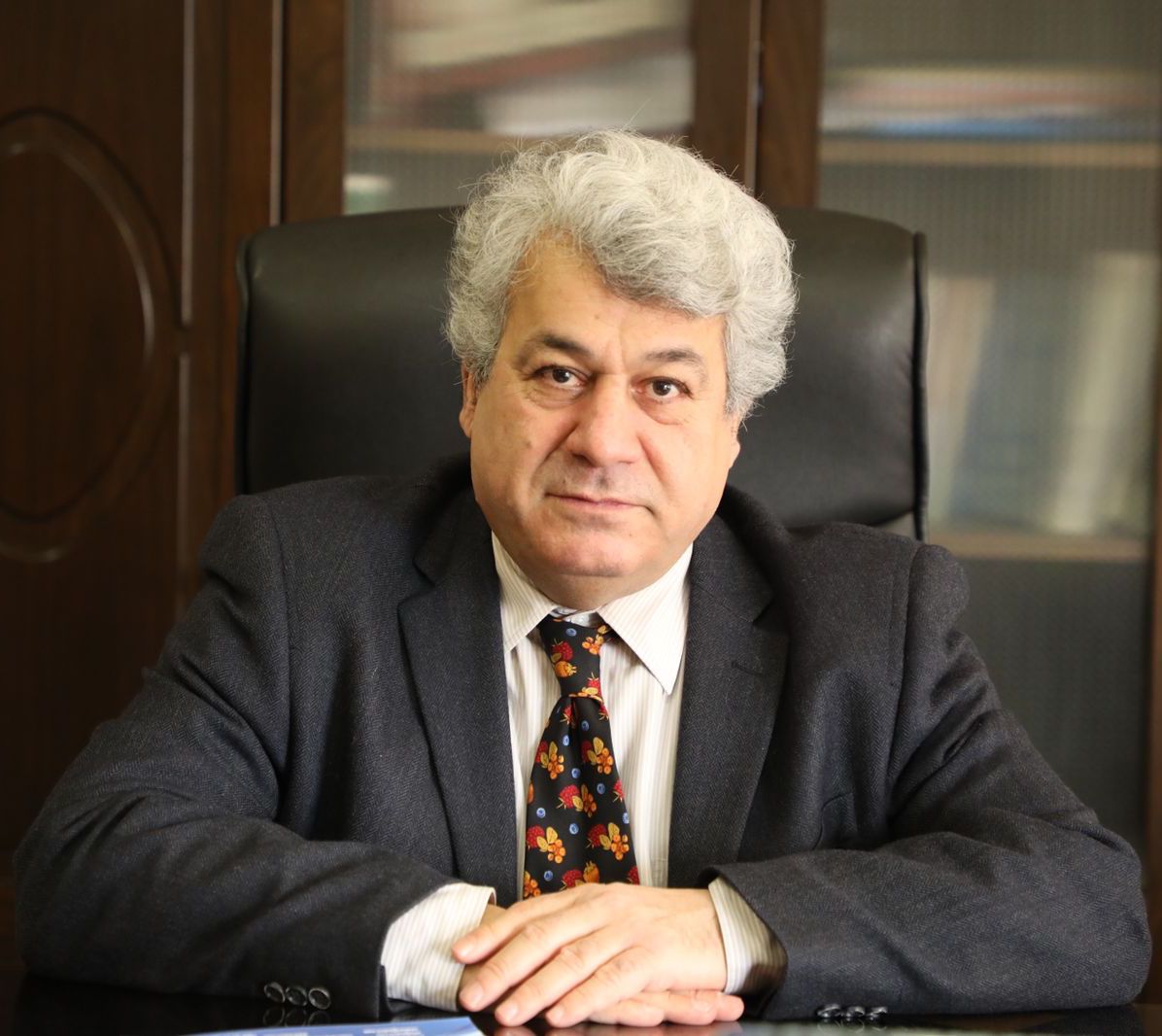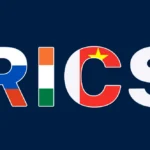
Exclusive Interviews: Kurdistan Region's Oil Exports Entering a Year-Long Halt
To read the Full Report on KRI/Iraq Oil Dispute, click here.
Myles B. Caggins III

Myles B. Caggins III is CEO of Words Warriors LLC. His company, provides specialized language and translation services, public relations strategy, and business consulting in Iraq’s Kurdistan Region. They lead external communications and government relations for the Association of the Petroleum Industry of Kurdistan. Myles is a retired U.S. Army colonel and previously served as spokesman for the Global Coalition to Defeat ISIS in Iraq and Syria. He is also a senior non-resident fellow at the New Lines Institute for Strategy and Policy. He has extensive international media experience and relationships with journalists—particularly on Arabic and Kurdish language networks. He has completed studies at Hampton University, Georgetown University, and Harvard Kennedy School. He resides in Manhattan, New York.
APIKUR is composed of eight international oil companies including: DNO (Norway), Genel (UK), Gulf Keystone Petroleum (UK), HKN (U.S.), Hunt Oil (U.S.), MOL Group (Hungary), ShaMaran (Canada), and WesternZagros (U.S.). Follow APIKUR at: @apikur_oil
Given the 2014 context, was KRG's decision to pursue independent oil sales legal? In order for Iraq to pay 17% of the budget to the Kurdish Region, was Baghdad's demand for 400,000 bpd of crude exports from KRI in 2014 practical? When the dispute with Baghdad reached an impasse and KRG authorities decided to sell the oil independently, did KRG authorities miscalculate or were they not aware of the repercussion?
- With 45 billion barrels of estimated oil reserves, the Kurdistan Region is a key part of Iraq’s renaissance and a major actor on world oil markets.
- APIKUR member companies have made more than $10 billion in investments in Iraq’s Kurdistan Region. A strong economy in Kurdistan Region benefits all Iraqis.
- It is imperative that we resume full oil production and recommence oil exports from Kurdistan to create economic stability in the region as a bulwark against destructive and destabilizing influences from external actors.
What does overdependence on oil revenues mean for KRI and by far its economy as an extension of Iraqi economy?
A strong and reliable oil and gas sector will attract investors in other industries including agriculture, manufacturing, technology, and tourism to Iraq’s Kurdistan Region.
What is the legal perspective regarding the Iraqi Federal Supreme Court decisions/rulings concerning Kurdish independent oil sales and what are the implications for KRI?
- Since 2022, the Iraqi judiciary, and in particular, the Federal Supreme Court of Iraq (FSCI) – which role includes overseeing compliance with the Constitution – has made a series of judicial rulings against the KRG that have degraded KRI’s autonomous status and damaged its economy.
- Many of these rulings appear to be politically motivated rather than independent legal rulings. Notably, Judge Abdulrahman Zebari recently resigned from the FSCI, reportedly on the grounds that rulings are contrary to its purpose as defender of the constitution and the federal system—specifically related to the GoI’s decisions related to salary disbursements for KRG civil servants.
What can be summarized from the ICC arbitration ruling in Iraq's favor? Will Türkiye abide by the ruling? If not, why?
We refer you to the Governments of Iraq and Türkiye for questions about the ICC arbitration.
What are the explanations behind the two different types of contracts between KRI and Iraq? Why Iraq pursues Technical Services Contracts (TSCs) while KRI pursues Production-sharing contracts (PSCs)?
- The PSC model used in the Kurdistan Region has a competitive investment remuneration structure widely used in petroleum-producing regions worldwide. Under the Kurdistan Region PSCs, the IOCs take all the financial risk, and in the case of success, they have the ability to recover their cost and generate a modest profit from the oil produced while the Kurdistan Region keeps the majority share of the reward. The PSC model of Kurdistan has been successfully deployed across the globe, has incentivized new investment, and is a fair balance of risk and reward for both the IOCs and the host countries.
- The Production Sharing Contracts between IOCs and the KRG share many similarities with the contractual framework in the Government of Iraq’s 6th licensing round.
- The oil and gas industry benefits all Iraqis and the nation’s reputation globally. Recognizing the sanctity of contracts and honoring the rule of law is the basis for foreign direct investment. Without certainty that contracts and law will be honored, Iraq’s investment climate could be immeasurably damaged.
- APIKUR member companies continue to demand to be compensated pursuant to their fully vetted and internationally protected contracts and have repeatedly raised this issue with KRG and GoI officials.
Why after adopting the Iraqi Constitution in 2005 Iraq did not transform the KRI oil contracts from PSCs to TSCs? Was it attainable for Baghdad under the Constitution?
We refer you to the Kurdistan Regional Government regarding their actions.
Baghdad asserts that if the PSCs are unconstitutional, then what measures can be taken to convert these contracts into TSCs while ensuring that the oil companies' rights continue to be guaranteed?
- APIKUR member companies have communicated the conditions required to restore exports through the ITP to the GoI and KRG:
- Any addendums must be agreed between the GOI, the KRG, and APIKUR member companies.
- There must be payment surety for past and future oil exports.
- Prospective oil sale payments to APIKUR member companies must be remitted directly to those companies.
- The APIKUR member companies' current commercial terms and economic model must be maintained.
- APIKUR members continue to seek to engage with all relevant stakeholders to put in place the agreements required to resume exports via ITP.
To what extent do the dynamics of relations between Türkiye-KRI and Türkiye-Iraq correspond concerning energy deals? In what ways has the dynamic evolved subsequent to the ICC ruling? What are the potential ramifications for each side?
- We refer you to the Governments of Iraq, Türkiye, and Kurdistan Regional Government for specific questions related to the ICC ruling.
- Resumption of exports through the ITP is an opportunity for Iraq to increase future global market share and improve its economy for the benefit of all Iraqis.
Dr. Fahrettin Sümer

Dr. Sümer holds a Ph.D. in International Studies and two master's degrees in political science and economics. Dr. Sümer’s areas of expertise include economics, international political economy, international relations theory, foreign policy analysis, globalization, and financial crises. Dr. Sümer has published several academic articles and written columns for a Turkish newspaper. In 2012 he published a book titled: The Neglected Impact of Non-Economic Factors on The Development of Financial Crises and Governmental Responses: The Mexican and Malaysian Cases of the 1990s.
His most recent research has focused on Turkey’s foreign relations with the EU and the Middle East. Dr. Sümer taught multiple economics, political economy, international relations, international business, and political science courses in South Carolina and Virginia.
Given the 2014 context, was KRG's decision to pursue independent oil sales legal? In order for Iraq to pay 17% of the budget to the Kurdish Region, was Baghdad's demand for 400,000 bpd of crude exports from KRI in 2014 practical? When the dispute with Baghdad reached an impasse and KRG authorities decided to sell the oil independently, did KRG authorities miscalculate or were they not aware of the repercussion?
Good questions. I think the KRG hoped for some independent revenue source, independent from Baghdad, and it worked for a while, from 2014 to 2023. Since the Iraqi constitution and international law are legal documents and are not too clear about who has authority to produce and sell Kurdistan Region of Iraq (KRI)’s oil, the KRG tried its chances. Now, both Federal Supreme Court of Iraq’s ruling and the ICC’s rulings gave this right to the central government of Iraq (GoI).
At this point, there is no point focusing on the past. It is better for both the KRG and the GOI to reach a deal, so that additional revenues can be generated from KRI oil sales, and KRG can get its fair constitutional share from the GoI budget. Once more money starts circulating in the KRI economy, the regional development will also speed up.
What does overdependence on oil revenues mean for KRI and by far its economy as an extension of Iraqi economy?
Oil sales are a good source of government revenue and government spending. Having oil revenue is not a bad thing, as long as these revenues are used to prepare the country and the region for the future. The world economy is changing fast, and Iraq and the KRI need to get ready for a diverse production-based economy. As a developing country and region, if right policies are followed, economic growth rates can speed up, and the future of the country for the future generations will be better. Oil (and potentially gas) revenues can be used for building infrastructure (roads, railroads, electricity generation), for supporting emerging sectors, encouraging entrepreneurship, and for diversifying the economy.
What is the legal perspective regarding the Iraqi Federal Supreme Court decisions/rulings concerning Kurdish independent oil sales and what are the implications for KRI?
I do not know the details of the Federal Supreme court’s decisions and rulings.
What can be summarized from the ICC arbitration ruling in Iraq's favor? Will Türkiye abide by the ruling? If not, why?
The ICC’s ruling is based on international trade agreements, and the principle of sovereignty in international law. A sovereign state has the highest authority in its territory, and without the consent of that state, another sovereign state cannot make a deal with a regional government. Türkiye is supportive of all win-win trade and energy relations with its neighbors. Türkiye is for continuation of KRI oil sails through the pipeline reaching to Ceyhan port. However, Türkiye does not want to violate the ICC’s ruling and severe its relations with GoI. Therefore, it is waiting for the KRG and GoI to reach an agreement on oil revenue sharing so that with the ICG’s approval oil sales can continue.
What are the explanations behind the two different types of contracts between KRI and Iraq? Why Iraq pursues Technical Services Contracts (TSCs) while KRI pursues Production-sharing contracts (PSCs)?
My rough understanding follows: In order to get oil (and gas) companies to invest in oil exploration and extraction, they need to expect some profit. The KRG promised this profit through production sharing- that is a percentage of the production revenue goes to the companies-, and Iraqi government pays for their technical services and keeps the oil revenue.
Why after adopting the Iraqi Constitution in 2005 Iraq did not transform the KRI oil contracts from PSCs to TSCs? Was it attainable for Baghdad under the Constitution?
Most of KIR’s PSCs were done after 2005, and since the KRG wanted to control its oil revenue, it follows independent PSCs contracts.
Baghdad asserts that if the PSCs are unconstitutional, then what measures can be taken to convert these contracts into TSCs while ensuring that the oil companies' rights continue to be guaranteed?
Iraqi oil ministry must renegotiate the contracts with the oil companies. I am sure that a deal can be reached where oil companies do not lose, and production can resume.
To what extent do the dynamics of relations between Türkiye-KRI and Türkiye-Iraq correspond concerning energy deals? In what ways has the dynamic evolved subsequent to the ICC ruling? What are the potential ramifications for each side?
Türkiye is eager to enhance win-win energy deals with its neighbors. For example, Türkiye and Azerbaijan built the BTC oil pipeline carrying Azerbaijan oil to Ceyhan port, and then they built TANAP pipeline transporting Azerbaijan gas to Europe. Both countries benefit from such projects.
Once the KRG and the GoI reach an agreement, Türkiye will work with both of them as long as they are in agreement. Türkiye is also working on a “development road” project with the GoI. I think the KRG can be involved in the project too. More potentially beneficial projects that can help with the region's economic development can be developed. However, all these positive relations depend on enhanced relations and security in the region.
Dr. Salam Abdullah

Dr. Abdullah is a dual-qualified lawyer in France and Iraq with a long experience of advising major international firms. Dr. Abdullah also taught at Saint Thomas University of Fredericton and Université de Moncton, New-Brunswick (Canada). Dr. Salam Abdullah received his law degree from Baghdad University, College of law (Iraq) and holds a master's degree and a PhD in international law from the University of Paris (France). He was called to the Iraqi Bar Association (1991) and the Paris Bar Association (1996).
Dr. Abdullah is the author of many articles on Iraqi law issues and published a monograph on labor law in Iraq, (Kluwer law international BV, The Netherlands 2012). He is regularly invited as speaker in conferences and seminars and appears in international medias as a specialist of Iraq in four languages.
Given the 2014 context, was KRG's decision to pursue independent oil sales legal? In order for Iraq to pay 17% of the budget to the Kurdish Region, was Baghdad's demand for 250,000 bpd of crude exports from KRI in 2014 practical? When the dispute with Baghdad reached an impasse and KRG authorities decided to sell the oil independently, did KRG authorities miscalculate or were they not aware of the repercussion?
First of all, it is necessary to remember that the nature of the issue, namely the oil dossier, must be understood within a multidisciplinary lens which means it has political, economic, and legal aspects. It is critical to acknowledge the undocumented aspect of the oil dossier, which, combined with its convoluted political, economic, and legal characteristics, could prove to be a significant barrier in tracing the origins of the oil-related disputes between Iraq and Erbil to devise a viable solution to the problem.
As a matter of fact, it's important to remember that the chaotic situation and the instability which had reigned in Baghdad since the fall of the regime in 2003 made any cooperation between Baghdad and Erbil very difficult, the skepticism made the choices less rational for both parties. The limited international legal capacities and skills of the KRI, especially in an area as complex as oil law, forced the Region to make apparently harder choices.
More precisely, the KRG authorities, subject to constant economic pressures from Baghdad and having no other choice for its own financial survival but to sell its oil independently, did not have the opportunity to consider the possible legal and financial consequences of such a decision.
Besides, KRI’s relations with international oil companies have been ambiguous, mostly because of lack of a legal framework that (1) protects the rights of KRI and (2) prevents attempts by foreign parties to claim victory over KRI in a legal dispute over oil. This is a major legal fallout on behalf of the Iraqi Kurdistan Parliament for not working on such a necessary and vital legal framework. Moreover, this lack of legal framework has affected KRI’s relations with the central government in Baghdad who, enjoying its status as a sovereign state, highly experienced in the field of oil, have vested in cracking these legal gaps to its advantage.
What does overdependence on oil revenues mean for KRI and by far its economy as an extension of Iraqi economy?
Another important aspect of this issue is the mythologies surrounding oil. Iraqi people think that the world is obsessed with Iraqi oil and its price always increases. However, oil price fluctuates thus the revenues must be saved for later when the price lowers. Second, oil revenues as the main source of a country’s economy are obviously unstable thus investments in non-oil revenues and economic diversification are a must. The side-effect of current expenditure and no savings of the oil revenue leads to economic downturn and leaves no chance for any development.
What is the legal perspective regarding the Iraqi Federal Supreme Court decisions/rulings concerning Kurdish independent oil sales and what are the implications for KRI?
The Iraqi Federal Supreme Court (FSC) is a constitutional entity whose function is to interpret and apply laws in accordance with the Constitution in an unbiased manner far from any political interference. This last point is crucial because the impartiality of this court goes without saying with its legitimacy.
Despite the criticism, the FSC, as a highest Court in Iraq whose decisions cannot be challenged in any way, is an essential legal instrument that the KRI could benefit from given that the KRI is politically in a minority situation in Iraq. The important point is how to benefit from the legal space that the FSC offers to the KRI to win cases and at a lower cost and sacrifices, which constitutes constitutionally speaking a significant privilege for the KRI. The latter could use its political, diplomatic, economic or legal position to advance the files, but the legal position constitutes an uncontested guarantee for the KRI. The existence of FSC not only warrants the balance of powers but it is also essential to the political survival of the KRI. Given the balance of power, a strategy based on "right against might" may better suit the KRI to defend its interests.
The FSC’s rulings that independent oil sales were illegal were cited as per Articles 110, 112, 115, and 130 of the Constitution. However, it is well known that the texts of the Iraqi Constitution leave room for interpretation and open the possibility of supporting legal counterarguments in favor of the KRI.
Nevertheless, it would have been preferable for the KRI before signing the PSCs with the IOCs to seek a legal opinion from the FSC, other advisory bodies, and to prepare the ground at the level of its Parliament by passing necessary and appropriate laws and decrees in order to better prepare the legal framework for its contracts, and thus to counterargue the Court’s rulings when that becomes necessary.
What can be summarized from the ICC arbitration ruling in Iraq's favor? Will Türkiye abide by the ruling? If not, why?
The ICC arbitration initially ordered Türkiye to pay roughly $1.9 billion to Iraq in compensation of damages as a result of Türkiye’s breach of the 1973 Pipeline Agreement with Iraq. However, given that Iraq was already $500 million in debt to Türkiye, the Court settled the dispute at $1.5 billion.
Türkiye's decision of halting oil exports is perhaps a political pressure card against Iraq to discourage Iraq from pursuing another legal arbitration brought by Iraq against Türkiye pretending that the latter has facilitated KRI’s oil sales from 2018-2022 in violation with the 1973 Pipeline Agreement.
It seems that the KRI has a case-by-case approach instead of building its systematic legal expertise and a long-term strategy to deal with any critical decisions that might have such consequences. Thus, the challenge for the KRI is to set strategies based on accurate data and expertise to deal with cases without potential fallout. It is important to identify that the KRI is the main party with most of the damages in the aftermath of oil exports halts, since Iraq has other options to export its oil.
What are the explanations behind the two different types of contracts between KRI and Iraq? Why Iraq pursues Technical Services Contracts (TSCs) while KRI pursues Production-sharing contracts (PSCs)? (B) Why after adopting the Iraqi Constitution in 2005 Iraq did not transform the KRI oil contracts from PSCs to TSCs? Was it attainable for Baghdad under the Constitution? (C) Baghdad asserts that the PSCs are unconstitutional, then what measures can be taken to convert these contracts into TSCs while ensuring that the oil companies' rights continue to be guaranteed?
In general terms, TSCs are more beneficial to any state or regional actor with IOCs. This is because TSCs take advantage of the services provided by the IOCs without entering into partnerships and to maximize the profit for the main Producer.
However, some States or Regional Authorities accept entering into PSCs to attract investors for whatever reason such as lack of technical expertise, investment, infrastructure, technologies, cost of the production or political instability in the region.
Iraq, before the nationalization of its oil industry, pursued PSCs but since the 70s it has been committed to TSCs which later was reaffirmed by articles of the Iraqi Constitution in 2005.
In terms of politics, IOCs would be legally and politically more attracted to the South of Iraq to make investments rather than the KRI, thus KRI had to offer incentives by offering PSCs to encourage IOCs to invest in KRI’s nascent oil industry.
Iraq, on the other hand, has always had reservations against the way the KRI was managing its oil industry. For instance, since the passing of the KRI oil and gas law in 2007, Iraq persistently has declared that those PSCs were illegal and contradicts articles of the Iraqi Constitution and advised companies to not enter into contracts with the KRG, otherwise they would be blacklisted.
Regarding the Iraqi government’s attitude towards IOCs working in the KRI, this complex subject seems open for negotiations between IOC and the government in Baghdad; Iraq, a founder of OPEC, has obviously a full aptitude to manage its oil industry and to negotiate from a position of strength towards these companies in the KRI. However, the Iraqi government is delaying the settlement of this dispute probably to make the solution coincide with the progress made on the draft law on oil. Iraq has built its capacity and know-how in the oil sector over decades, any company would be willing to work with Baghdad as legally, they would face no problems. As a reminder, Iraq holds the world's fifth largest proved crude oil reserves, which is key incentive for foreign companies to continue working in Iraq.
To what extent do the dynamics of relations between Türkiye-KRI and Türkiye-Iraq correspond concerning energy deals? In what ways has the dynamic evolved subsequent to the ICC ruling? What are the potential ramifications for each side?
In terms of international relations, state-to-state relations are more reliable than state-to-region. However, it could be argued that the KRI has balanced its political and diplomatic relations with Türkiye, Iran, and the US which take each other for an adversary occasionally. The KRI could also have redirected its focus to have a strong relationship with the central government of Baghdad.
The KRI being a major element for the stability of Iraq and enjoying excellent international relations should play this card to better preserve the achievements of the KRI by putting pressure on its political partners to accept a concerted roadmap by a majority of KRI and its Iraqi stakeholders especially at this crucial moment when the Iraqi government is preparing a bill reorganizing oil and gas industries in Iraq.



